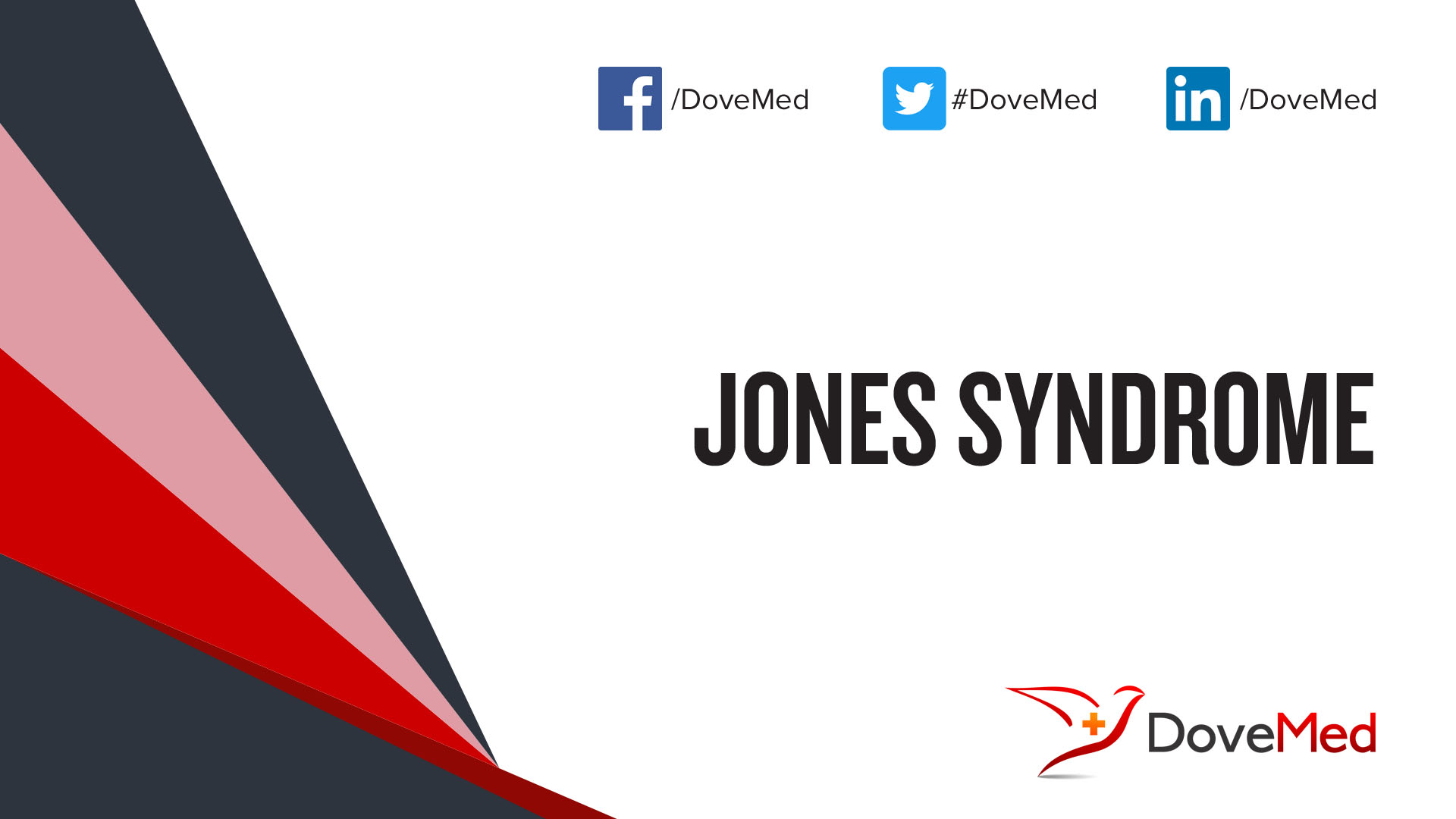Jones Syndrome: Understanding The Rare Genetic Disorder
Jones Syndrome is a rare genetic disorder that affects a small percentage of the population worldwide. It is characterized by a unique combination of symptoms that can significantly impact the quality of life of those affected. This condition often goes undiagnosed or misdiagnosed due to its rarity and overlapping symptoms with other conditions.
Jones Syndrome primarily affects the skeletal system, skin, and connective tissues. It is caused by a mutation in a specific gene, which leads to abnormal development in various parts of the body. Understanding the syndrome requires delving into its genetic basis, symptoms, and available treatments.
This article aims to provide comprehensive information about Jones Syndrome, including its causes, diagnosis, treatment options, and the latest research developments. Whether you are a patient, caregiver, or healthcare professional, this guide will equip you with the knowledge needed to better understand and manage this condition.
Read also:Legacy Early College Your Gateway To A Brighter Future
Table of Contents
- Introduction to Jones Syndrome
- Causes and Genetic Basis
- Symptoms and Diagnosis
- Diagnostic Procedures
- Treatment Options
- Long-Term Management
- Current Research and Developments
- Support and Resources
- Prevention Strategies
- Conclusion and Call to Action
Introduction to Jones Syndrome
Jones Syndrome is a rare genetic disorder that affects approximately 1 in 100,000 individuals globally. First identified in the early 2000s, the syndrome has been the subject of extensive research due to its complex nature and impact on various body systems. The condition is named after Dr. Harold Jones, who first documented its symptoms in a series of case studies.
Individuals with Jones Syndrome often experience challenges related to mobility, skin integrity, and organ function. Early diagnosis and intervention are critical for improving outcomes and quality of life. Awareness and education about this condition are essential for healthcare providers and the general public alike.
Causes and Genetic Basis
Genetic Mutation
The primary cause of Jones Syndrome is a mutation in the JON1 gene, located on chromosome 12. This gene plays a crucial role in collagen production, which is vital for maintaining the structure and strength of connective tissues. Mutations in this gene disrupt collagen synthesis, leading to the characteristic symptoms of the syndrome.
Inheritance Patterns
Jones Syndrome is inherited in an autosomal dominant pattern, meaning that a single copy of the mutated gene from one parent is sufficient to cause the condition. However, in some cases, the mutation occurs spontaneously, without a family history of the disorder.
Symptoms and Diagnosis
The symptoms of Jones Syndrome can vary widely among individuals, but common manifestations include joint hypermobility, skin fragility, and cardiovascular abnormalities. Early recognition of these symptoms is crucial for timely diagnosis and management.
Diagnostic Procedures
Clinical Evaluation
Diagnosis of Jones Syndrome typically begins with a thorough clinical evaluation, where healthcare providers assess physical symptoms and medical history. This may involve observing joint mobility, skin elasticity, and other characteristic features.
Read also:Rhea County Fair A Celebration Of Tradition Fun And Community
Genetic Testing
Confirmatory diagnosis often requires genetic testing to identify mutations in the JON1 gene. Advances in genetic technology have made this process more accessible and accurate, enabling earlier detection and intervention.
Treatment Options
Treatment for Jones Syndrome focuses on managing symptoms and preventing complications. While there is currently no cure, a combination of medical, surgical, and lifestyle interventions can significantly improve quality of life.
- Medications: Pain relievers and anti-inflammatory drugs are commonly prescribed to manage joint pain and inflammation.
- Surgical Interventions: In severe cases, surgery may be necessary to correct joint instability or other structural abnormalities.
- Physical Therapy: Regular physical therapy can help improve strength, flexibility, and overall function.
Long-Term Management
Regular Monitoring
Long-term management of Jones Syndrome involves regular follow-ups with healthcare providers to monitor symptoms and adjust treatment plans as needed. This may include periodic imaging studies, blood tests, and other diagnostic evaluations.
Lifestyle Modifications
Adopting a healthy lifestyle can also play a significant role in managing Jones Syndrome. This includes maintaining a balanced diet, engaging in low-impact exercise, and avoiding activities that strain the joints or skin.
Current Research and Developments
Ongoing research into Jones Syndrome aims to uncover new treatment options and improve diagnostic techniques. Recent studies have focused on gene therapy and targeted drug development, offering hope for more effective management of the condition in the future.
Support and Resources
Community Support
Connecting with others who have Jones Syndrome can provide valuable emotional support and practical advice. Online forums, support groups, and advocacy organizations offer platforms for sharing experiences and resources.
Professional Guidance
Working closely with healthcare professionals who specialize in rare genetic disorders is essential for optimal management of Jones Syndrome. Genetic counselors, rheumatologists, and dermatologists are among the specialists who can provide expert care.
Prevention Strategies
While Jones Syndrome cannot be prevented in most cases due to its genetic basis, individuals with a family history of the condition can consider genetic counseling before planning a family. This can help assess risks and explore potential options for reducing the likelihood of passing the mutation to future generations.
Conclusion and Call to Action
Jones Syndrome is a complex and challenging condition, but with proper diagnosis, treatment, and support, individuals affected by it can lead fulfilling lives. By raising awareness and advancing research, we can improve outcomes for those living with this rare genetic disorder.
We encourage readers to share this article with others who may benefit from its information. If you or someone you know is affected by Jones Syndrome, consider reaching out to support groups or healthcare professionals for additional guidance. Together, we can make a difference in the lives of those impacted by this condition.
For further reading, explore related articles on our website or consult reputable sources such as the National Institutes of Health (NIH) and the Genetic and Rare Diseases Information Center (GARD).


